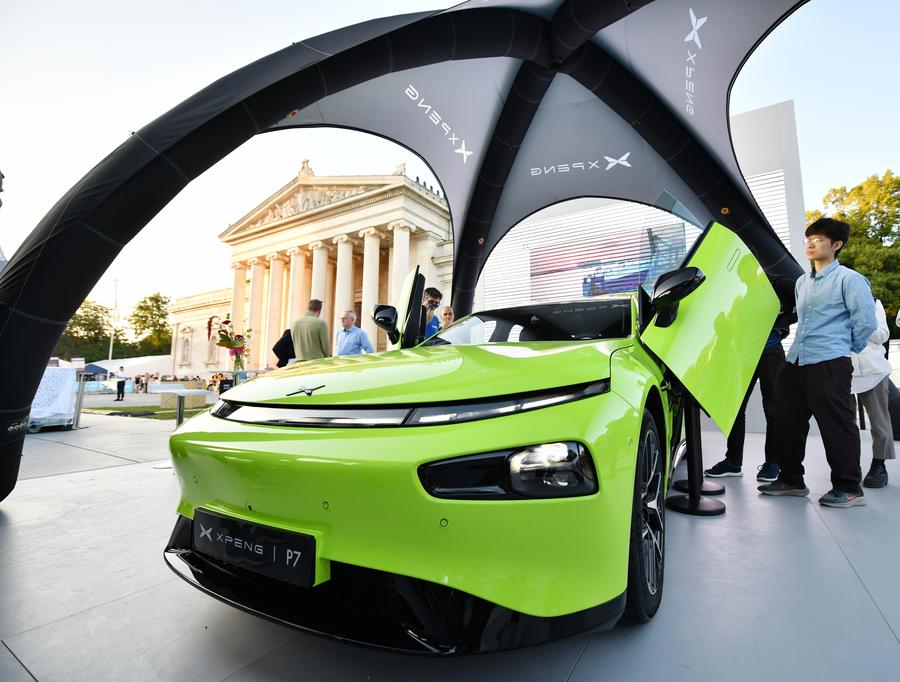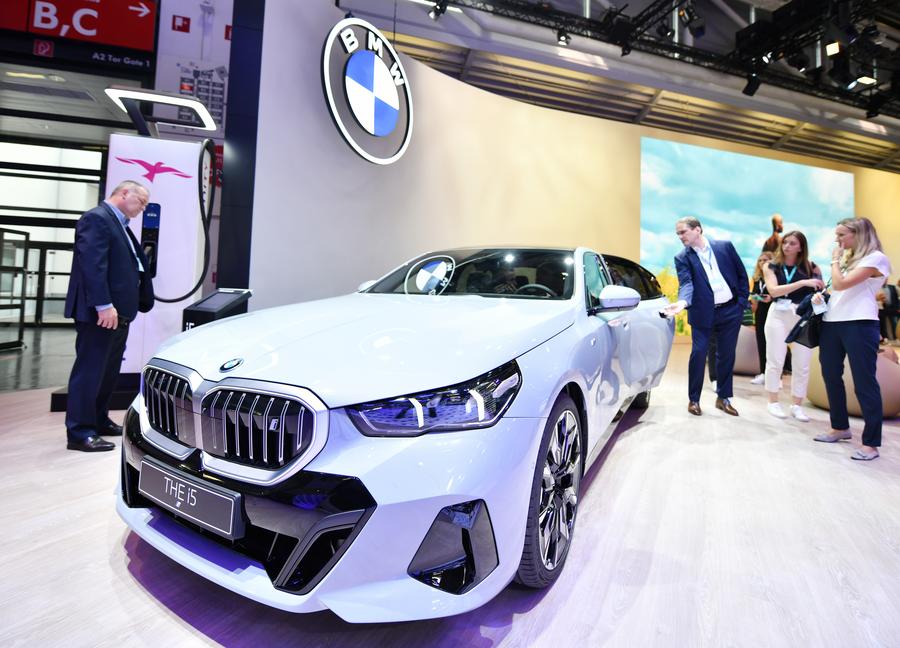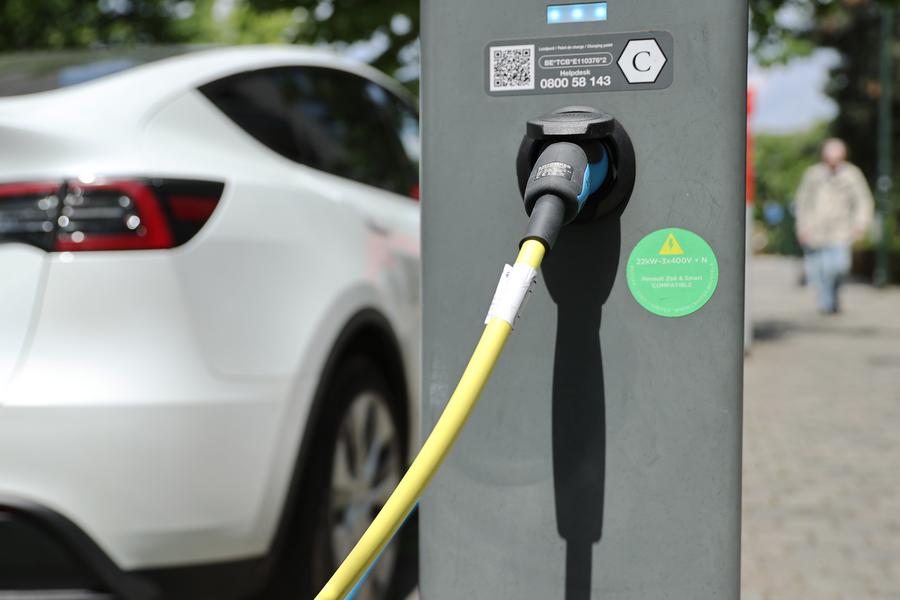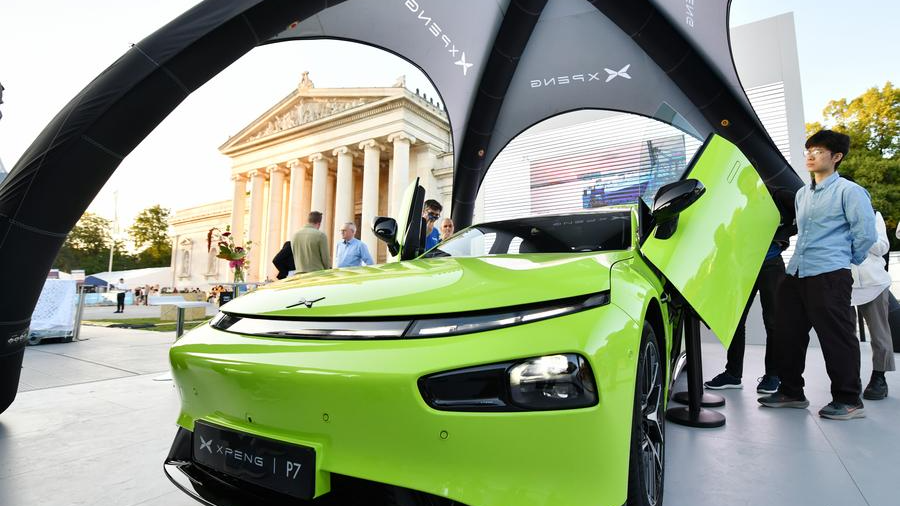People visit the booth of Chinese carmaker Xpeng during the 2023 International Motor Show in Munich, Germany, Sept. 5, 2023. (Xinhua/Ren Pengfei)
The association urged the European Commission to refrain from imposing the announced tariffs and instead find a negotiated solution with China.
BERLIN, July 3 (Xinhua) -- The planned tariffs against China-made electric vehicles (EVs) would be counterproductive for Europe's climate goals and harmful to its industry and consumers, the German Association of the Automotive Industry (VDA) said on Wednesday.
The association warned in a statement that Western car manufacturers in China would also be affected by the tariffs initiated by the European Union (EU), in some cases even worse than Chinese companies.
The cooperation and production of European carmakers in China were "an important building block for the transformation and competitiveness in Europe," the VDA stated, emphasizing that the EU has historically benefited from its openness in international trade.
Germany, in particular, maintains a significant surplus in the automotive trade with China. Last year, Europe's largest economy exported passenger cars and parts valued at 26.3 billion euros (28.4 billion U.S. dollars) to China, meanwhile, imports from China amounted to 6.8 billion euros, according to the VDA.
A BMW i5 electric car is displayed during the press preview of the 2023 International Motor Show (IAA) in Munich, Germany, Sept. 4, 2023. (Xinhua/Ren Pengfei)
The tariffs, set to take effect soon if no other political agreement is reached, would also "make it more difficult to successfully ramp up electric drive and thus decarbonize and achieve the climate targets," the VDA emphasized.
The association urged the European Commission to refrain from imposing the announced tariffs and instead find a negotiated solution with China. It welcomed the fact that talks have now started between the two parties.
"Competitiveness is fostered through competition," the association said. It proposed promoting this through free trade agreements, targeted and efficient funding for research and innovation, and a coherent policy framework that embraces technological advancements.
The German government rejects punitive tariffs on Chinese EVs. Chancellor Olaf Scholz has made a compromise offer in the customs dispute, proposing equally high tariffs on car imports from both sides, according to local media reports last week.
This file photo taken on June 6, 2024 shows an electric car at a charging station near the European Commission building in Brussels, Belgium. (Xinhua/Zhao Dingzhe)
Due to the risk of trade conflicts, a third of over 160 German economic experts have opposed tariffs, while some others also expressed their hope to reduce the duties, according to a survey published Wednesday by the Munich-based ifo Institute for Economic Research.
The institute stressed that the tariffs would not weaken the position of China's electric cars, whereas "European manufacturers would not become more efficient as a result of tariffs."







 A single purchase
A single purchase









